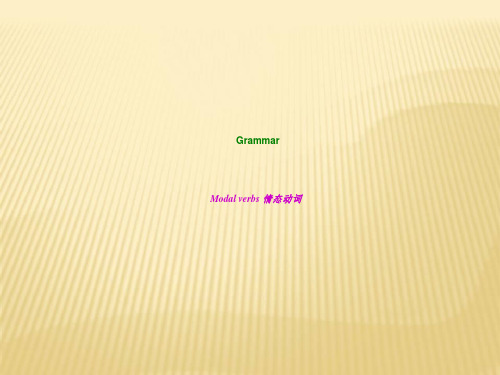might比may语气更委婉,没 有时间上的区分。但在 might引起的疑问句中,答 语不用might, 应该用may
– Might/ May I have a look? – Yes, you may. 或 Yes, please./ Certainly.
No, you mustn’t. 或 No, you’d better not.
⑹ cannot ... too ... can never ... too ... “无论.....也不为过” “越......越好”
You can’t be too careful with driving.
2、may 与 might
⑴ 表示请求或许可,“可 以”,may比can正式。
-- May/ Can I go now? -- Yes, you may/ can.
⑵ 表示推测,“可能”。 might比may语气更不肯定
He may/might have known the news.
(3) 在机关、学校等的文书、 公告中, 表示“不 得......”,, “禁止......”,可 以用may not或mustn’t
You may not smoke in the
be able to do sth.表示有能 力做某事,并且做了
⑵ 表示请求或允许,在口 语中可以用can代替may, 但may比can正式
-- May/ Can I come in? -- Yes, you may/ can.
表示请求,口语中常用 could代替can,使语气更 委婉,但主要用在疑问句 中,答语不能用could, 应 该用can
情态动词表示说话人的语 气或对事物所持的态度。
情态动词有一定的词义, 但不能单独做谓语。







